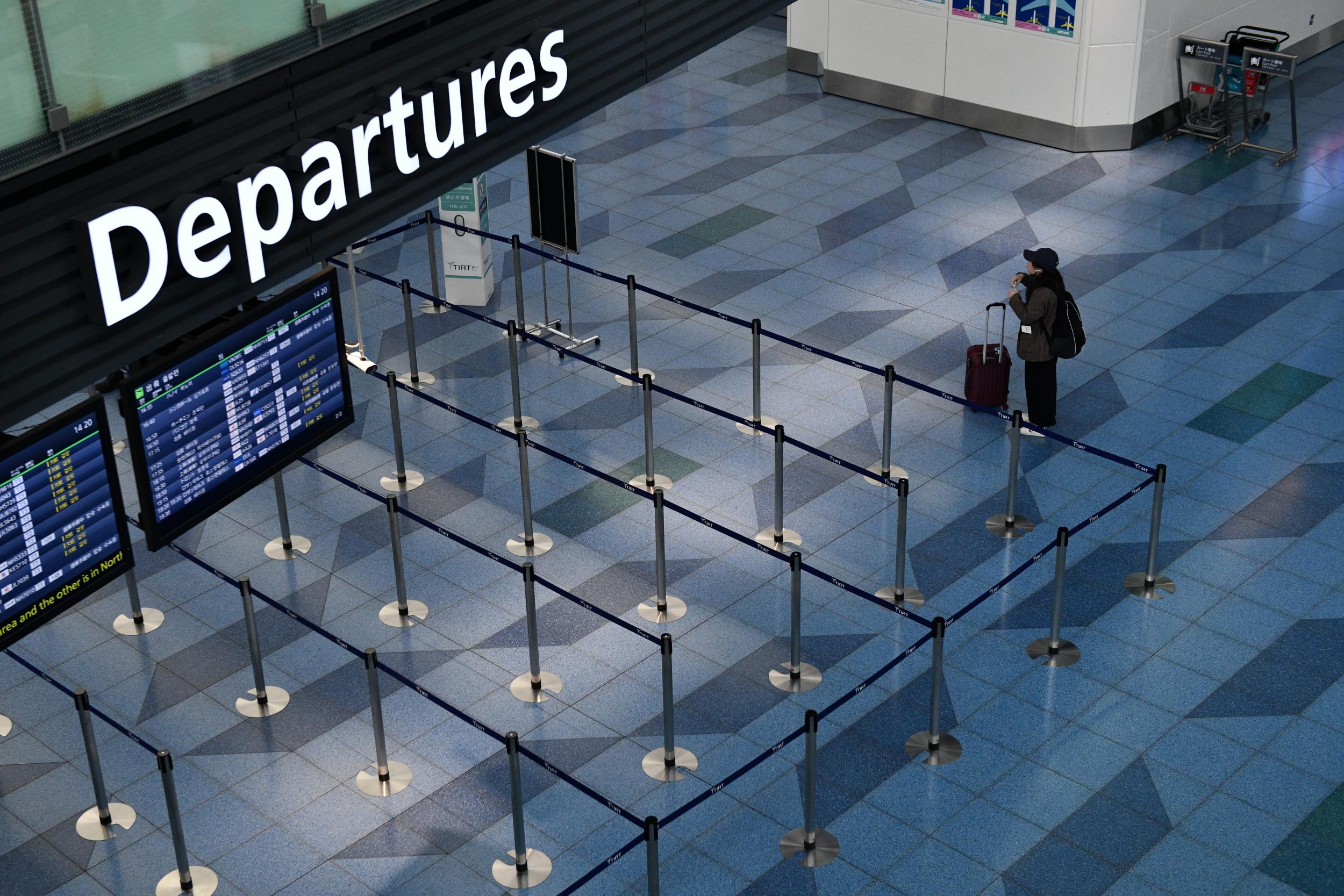This website uses cookies so that we can provide you with the best user experience possible. Cookie information is stored in your browser and performs functions such as recognising you when you return to our website and helping our team to understand which sections of the website you find most interesting and useful.

The coronavirus pandemic is expected to force airlines into following unexpectedly strict limits on their carbon emissions into the future, potentially helping the fight against climate change, experts have said.
In 2016 a UN deal between 192 countries agreed to hold net carbon emissions from international flights at 2020 levels, with any future growth having to be offset elsewhere.
The plan – widely regarded as too weak to stop catastrophic climate change by environmental scientists – used 2020 emissions as a benchmark to give the aviation industry time to grow, with the expectation that emissions would be higher than in the previous years.
But the Covid-19 pandemic sweeping the world has dramatically reduced flights worldwide, "flat-lining" the industry, and is expected to mean that 2020 aviation emissions are unusually low – meaning airlines will have to stay within a tighter limit than they had expected.
"One possible benefit for this virus, if you can see any light in this particular tragedy, is that their baseline is 2020, and at the moment aviation is as we know, kind of flat-lining," Katherine Kramer, global head of climate change policy at Christian Aid told MPs.
Speaking at hearing of the House of Commons Environmental Audit Committee alongside other experts on climate policy, Ms Kramer said airlines would now likely be held to "a very low base-line".
Aviation is a major contributor to climate change: in 2018, domestic and international flights emitted around 895 million tonnes of CO2, accounting for 2.4 per cent of worldwide energy-related CO2 emissions.
Planes also emit nitrogen oxides and soot which are thought to more than double the climate impact of flying compared to just measuring its CO2 emissions. Aviation is also growing quickly and emissions have increased by 26 per cent since 2013 alone.
But the COVID-19 outbreak has seen thousands of flights around the world cancelled and airlines announce that they are at risk of going bust because of lack of customers. British airlines have asked Boris Johnson for a £7.5 billion bailout to prevent a wipeout.
The framework which governs aviation emissions, agreed at the United Nations, is called Corsia – short for “Carbon Offsetting and Reduction Scheme for International Aviation.
International aviation governed by the UN’s International Civil Aviation Organisation (ICAO) and is excluded from the national pledges in the Paris Agreement.
It establishes a trading scheme whereby airlines flying between signatory countries will have to individually buy "emissions offsets" from other parts of the economy if they increase their emissions – effectively providing funds for green projects. Such projects could include tree planting, green energy, or energy efficiency improvements.
Ms Kramer, who previously worked on the scheme, said there were still problems with how strict the scheme was and that "the quality controls are not what we would want to see" with regards to what counts as a carbon offset.
Climate scientists say simply offsetting aviation – or other parts of the economy – will not be enough to halt catastrophic climate change and that aviation must directly reduce its emissions too. Airlines note that there are provisions in Corisa for "abnormal emissions" in 2020, so there may be loopholes.
She added: "I have to say when I first heard what their target was, keeping emissions effectively at 2020 levels ... I was really quite appalled.
Created with Sketch.
Created with Sketch.
1/20
Top: Nabi Younes market, Mosul
Bottom: Charles Bridge, Prague
Reuters
2/20 Grand Mosque, Mecca
Reuters
3/20 Sagrada Familia, Barcelona
Reuters
4/20 Nabi Younes market, Mosul
Reuters
5/20 Basra Grand Mosque, Iraq
Reuters
6/20 Charles Bridge, Prague
Reuters
7/20 Taj Mahal hotel, India
Reuters
8/20 Dubai Mall, UAE
Reuters
9/20 Beirut March, Lebanon
Reuters
10/20 Gateway of India, Mumbai
Reuters
11/20 Cairo University, Egypt
Reuters
12/20 Amman Citadel, Jordan
Reuters
13/20 Church of the Nativity, Bethlehem
Reuters
14/20 Beirut March, Lebanon
Reuters
15/20 Cairo, Egypt
Reuters
16/20 Cairo University, Egypt
Reuters
17/20 Victoria Memorial, India
Reuters
18/20 Amman Citadel, Jordan
Reuters
19/20 Amman Citadel, Jordan
Reuters
20/20 Sidon, Lebanon
Reuters
1/20
Top: Nabi Younes market, Mosul
Bottom: Charles Bridge, Prague
Reuters
2/20 Grand Mosque, Mecca
Reuters
3/20 Sagrada Familia, Barcelona
Reuters
4/20 Nabi Younes market, Mosul
Reuters
5/20 Basra Grand Mosque, Iraq
Reuters
6/20 Charles Bridge, Prague
Reuters
7/20 Taj Mahal hotel, India
Reuters
8/20 Dubai Mall, UAE
Reuters
9/20 Beirut March, Lebanon
Reuters
10/20 Gateway of India, Mumbai
Reuters
11/20 Cairo University, Egypt
Reuters
12/20 Amman Citadel, Jordan
Reuters
13/20 Church of the Nativity, Bethlehem
Reuters
14/20 Beirut March, Lebanon
Reuters
15/20 Cairo, Egypt
Reuters
16/20 Cairo University, Egypt
Reuters
17/20 Victoria Memorial, India
Reuters
18/20 Amman Citadel, Jordan
Reuters
19/20 Amman Citadel, Jordan
Reuters
20/20 Sidon, Lebanon
Reuters
"Because they've had since 1997 and the Kyoto protocol to try and get heir act together on climate change and done absolutely nothing for around 20 years."
She described Corsia overall as "pretty bad" as a target.
A spokesperson for Airlines UK, the lobbying organisation representing Britain's aviation industry, said: "This year UK aviation made a world-first commitment to become net zero carbon by 2050. International action, initially though Corsia, is integral to our decarbonisation plans.
"It is much too early to say what the impact of Covid-19 will be on CORSIA, and we will continue to look at how the situation evolves over time."
A source at one airline said: “It is too early to know at this stage as it depends how long the recovery will be and what the emission levels will be in 2021. There is provision within the Corisa design to take account of abnormal level of emissions for 2020”.



 Africana55 Radio
Africana55 Radio 

